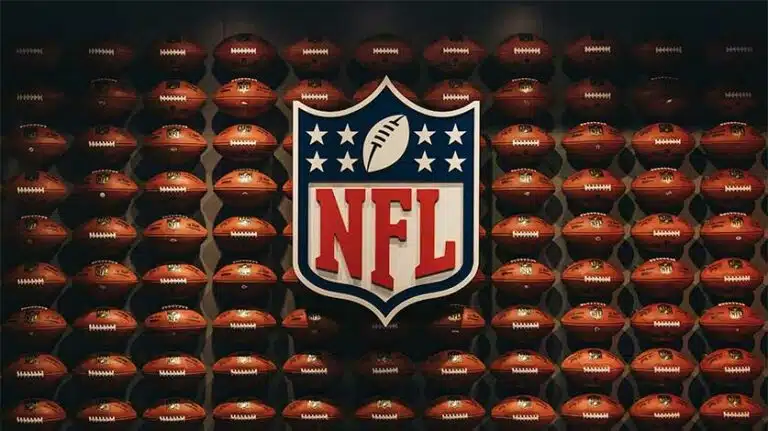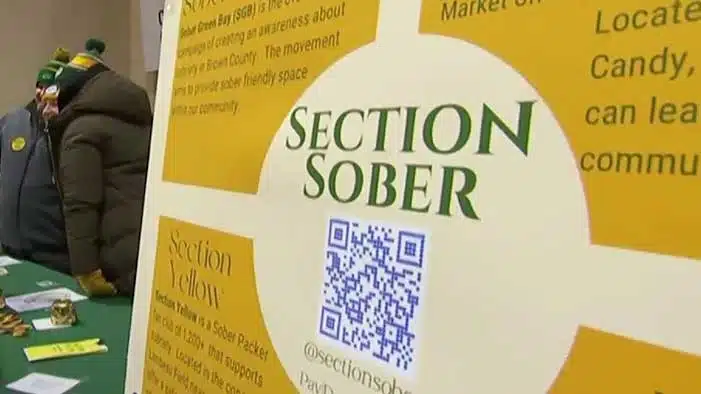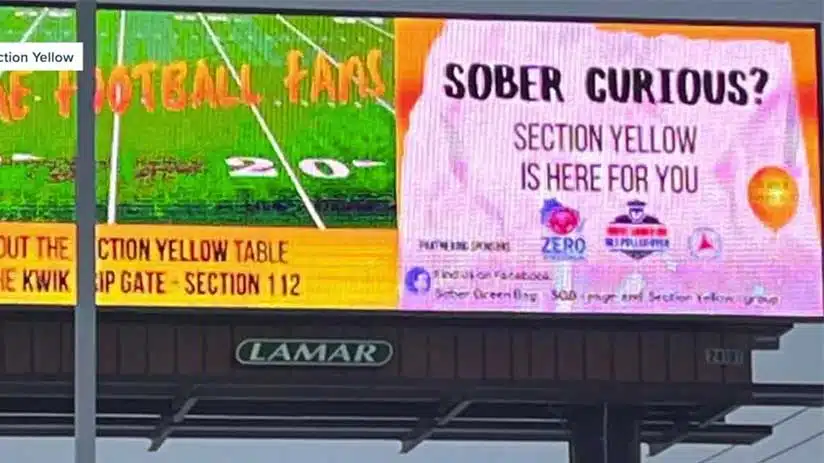NFL Creates Sober Sections In Some Stadiums
- Sober Sections In The NFL
- Participating NFL Stadiums
- Benefits Of Sober Sections
- Alcohol Addiction Treatment Options

Alcohol has a strong presence in the football world, with many fans drinking before, during, and after each game. This presence creates problems for people in recovery from alcohol addiction.
In fact, some football fans avoid games because they fear the abundance of alcohol will trigger a relapse. That’s why multiple NFL stadiums have introduced sober sections.
Sober Sections In The NFL
Sober sections are alcohol-free seating areas. The first sober section in the NFL was formed at the Green Bay Packers Lambeau Field during the 2020 season.
Section Yellow
Named “Section Yellow,” the area features a booth where volunteers hand out stickers that say “one game at a time,” which references the popular recovery mantra “one day at a time.”
The volunteers also offer other recovery resources, including information on local treatment programs and recovery groups.

Section Yellow was co-founded by John Plageman. In 2009, a few months into his recovery from alcohol addiction, Plagemen attended a concert by the rock band Phish. He feared that the alcohol-heavy environment might disrupt his recovery.
However, he soon discovered The Phellowship, a group of sober Phish fans who meet under a yellow balloon at concerts to support each other.
These types of groups originated in the early 1980s at Grateful Dead shows. They now appear at various concerts and music festivals, usually gathered under a yellow balloon.
A few years after finding out about The Phellowship, Plageman became a volunteer for the group. He then realized he could create a similar sober community for fellow Green Bay Packers fans.
He set up a table with a yellow balloon at a Packers game, providing support and recovery resources to sober attendees. This effort soon expanded into Section Yellow.
Participating NFL Teams/Stadiums
Since then, Section Yellow has inspired other NFL teams to create alcohol-free seating areas, including:
- Arizona Cardinals
- Seattle Seahawks
- Kansas City Chiefs
- Tampa Bay Buccaneers
- New England Patriots
- Jacksonville Jaguars
- Cleveland Browns
- Detroit Lions
- Chicago Bears
- Buffalo Bills
- Miami Dolphins
- Pittsburgh Steelers
- Philadelphia Eagles
The NFL hopes to eventually create sober sections for all stadiums. It may even establish a large sober section for the Super Bowl.
Benefits Of Sober Sections
Sober sections give recovering football fans a place to relax and enjoy the game without worrying about alcohol triggers. Alcohol triggers are sights, sounds, smells, or other stimuli that make a person want to drink alcohol.
For example, a person might get triggered by the sight of a drunk person or the smell of beer. While these triggers may be common in a standard football stadium, they won’t appear in sober sections. As a result, sober fans can watch the game with far less discomfort.
Community
Sober sections also offer community. This sense of belonging is especially important at alcohol-heavy events like football games. Without it, people in recovery may feel judged and isolated. These feelings can lead to relapse.
For instance, a person might accept an alcoholic drink just to feel included. Sober sections help people socialize without sacrificing their health.
Good For All Fans
Finally, even football fans who aren’t in recovery can benefit from sitting in a sober section. They may find that they enjoy the game more when they aren’t intoxicated.

Also, spending time in a sober crowd could inspire them to cut down on their drinking and improve their overall wellness.
Alcohol Addiction Treatment Options
If you think you or someone you love may have an alcohol addiction, look for these signs:
- feeling unable to stop drinking even if you want to
- needing increasingly larger or more frequent drinks to feel drunk (also called tolerance)
- experiencing unpleasant withdrawal symptoms, such as anxiety and shaking, when you don’t drink alcohol (also called physical dependence)
- losing interest in activities that don’t involve alcohol
- using alcohol in unsafe situations, such as while you’re driving
- continuing to drink even when it causes problems in your personal or professional life
Like other diseases, alcohol addiction requires treatment. The most common treatments include:
- medical detox, in which doctors help you manage withdrawal symptoms as you stop drinking alcohol
- behavioral therapy, in which a mental health professional helps you change unhealthy behaviors and beliefs related to your alcohol use
- medication-assisted treatment, in which doctors prescribe medications to ease alcohol cravings and withdrawal symptoms
To learn more about alcohol addiction treatment options, please reach out to an Ark Behavioral Health specialist. Our inpatient treatment programs and outpatient treatment programs offer personalized, evidence-based care to help you or your loved one stay sober.
Written by Ark Behavioral Health Editorial Team
©2024 Ark National Holdings, LLC. | All Rights Reserved.
This page does not provide medical advice.
Green Bay Press Gazette - What's a sober football fan to do at Lambeau? Section Yellow is an 'oasis' for nondrinking Packers fans.
Live For Live Music - Phish Fans Inspire New Sober Support Community At Iconic NFL Stadium
Today - NFL creates sober sections in some stadiums

Questions About Treatment?
Ark Behavioral Health offers 100% confidential substance abuse assessment and treatment placement tailored to your individual needs. Achieve long-term recovery.
100% confidential. We respect your privacy.
Prefer Texting?
Our friendly support team is here to chat 24/7. Opt out any time.

People Also Read
- Side Effects Of Alcohol
- Alcohol Abstinence Vs. Moderate Drinking
- 10 Benefits Of Alcohol Abstinence
- Why Alcohol Should Be Banned
- Consequences Of Heavy Drinking
- Am I An Alcoholic?
- What Does It Mean To Be Sober Curious?
- Binge Drinking Once A Week
- How Many Drinks A Day Is Considered Alcohol Abuse?
- How To Stop Drinking






 Learn More
Learn More








